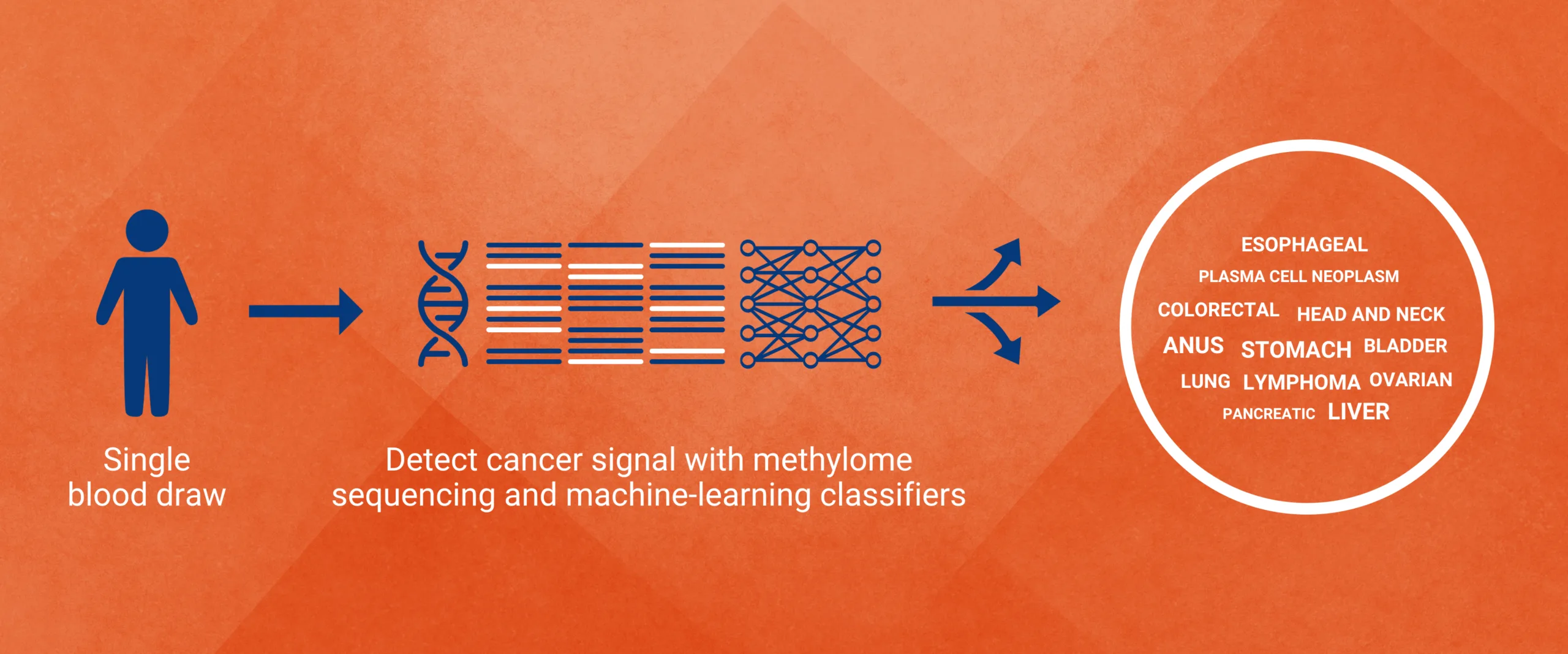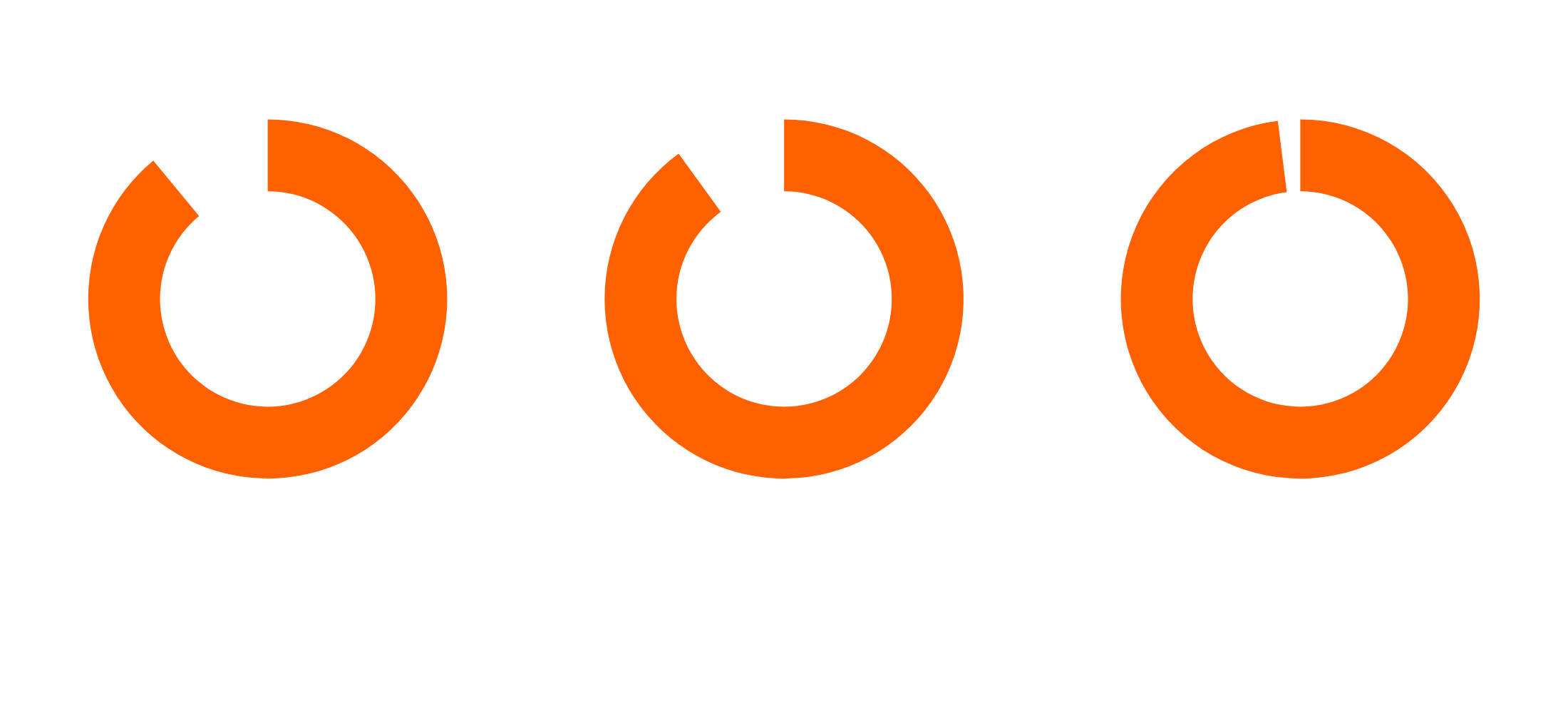One test
Many cancers
Single blood draw

Detect cancer early,
when it is treatable
Too many cancers are detected too late when the prognosis is poor. But if we catch cancer early, we have a great chance of beating it.
We have the medical knowledge to treat and beat cancer now, we simply need the technology to detect it earlier.

9/10 people
will beat cancer if detected locally

2/10 people
will beat cancer if it has spread
At Fingerprint
Diagnostics
we are developing
the next generation
of technologies for
early cancer detection
through blood.
The Science
All cells in the human body, including cancer cells, routinely release cell-free DNA (cfDNA) fragments into our bloodstream. By analyzing their DNA methylation signals, we can portray and identify the molecular 'fingerprint' of cancer in the blood.

Our Technology
With our proprietary molecular assay, we are looking at hundreds of thousands of DNA methyl markers to make cancer methylome maps. Then we are leveraging machine learning to detect and classify the molecular fingerprint of cancer and locate the organ of origin.

How Does it Work?
Our machine-learning classifiers have been trained on tissue-based and blood-based cancer samples.
We are also developing a state-of-the-art proprietary molecular assay for easy scan of methylomes.


Currently, The TissueFingerprint classifier has been trained on 15 types of cancer, and it can recognize cancer signal in 98 out of 100 cancer tissue samples. On top of that, it can predict the type of cancer with an accuracy of 96%. It can also recognize non-cancer tissue with high precision, with a specificity of >99%.

Currently, The BloodFingerprint classifier has been trained on lung, colon, stomach, liver, and prostate cancer. It can detect cancer with a sensitivity of 89% and correctly predict the organ of origin in 90% of the cases. It can recognize non-cancer blood samples with high precision, with a specificity of >98%.
Clinical Trials
To support scientific and technological advance in a clinical setting, we are laying the groundwork for the largest clinical trial program in genomic medicine in Central and Southern Europe.
To make this possible, we are partnering with leading healthcare clinics, medical centers, and academic institutions.
Our DISCOVERY study will be a prospective, multi-center, observational study with a collection of disidentified biospecimens and clinical data from at least 10,000 participants from clinical networks in South Central Europe.
The purpose of the study is to collect blood samples from participants with a new cancer diagnosis and from participants without a cancer diagnosis to develop DNA methylation-based models and distinguish cancer from non-cancer.
